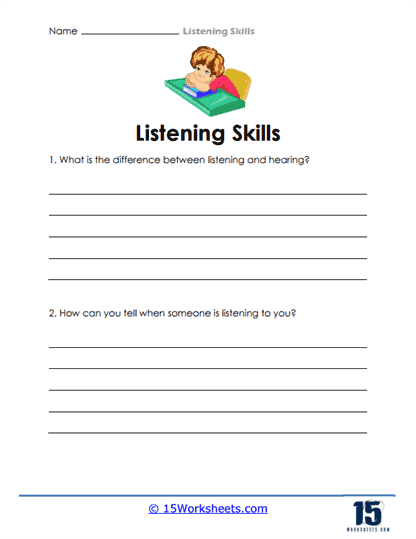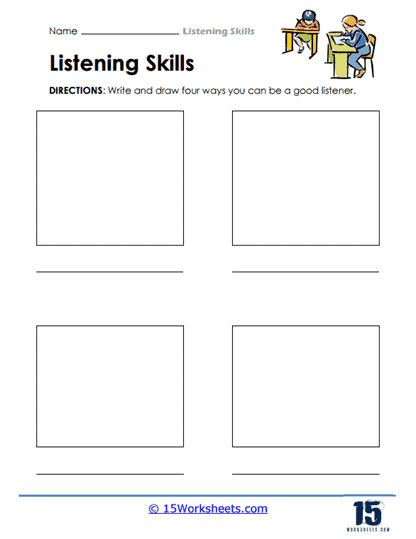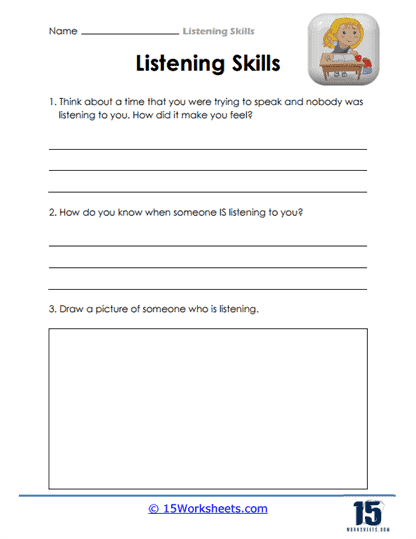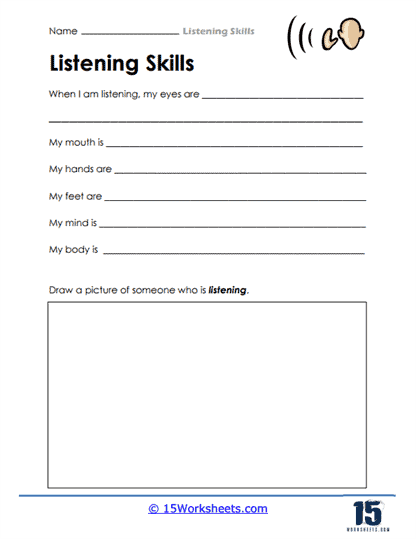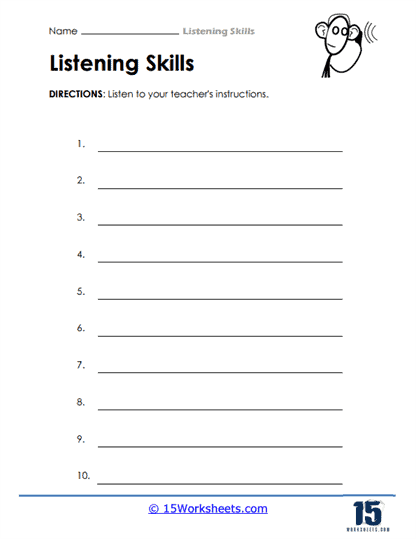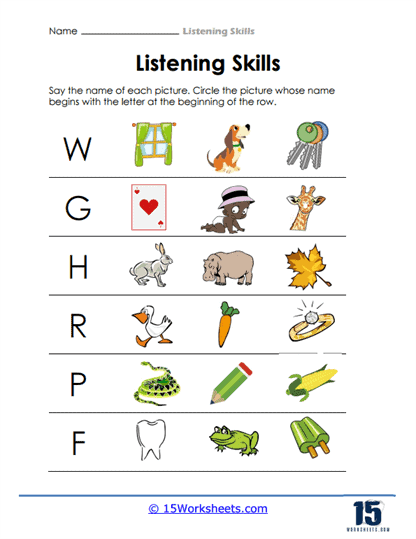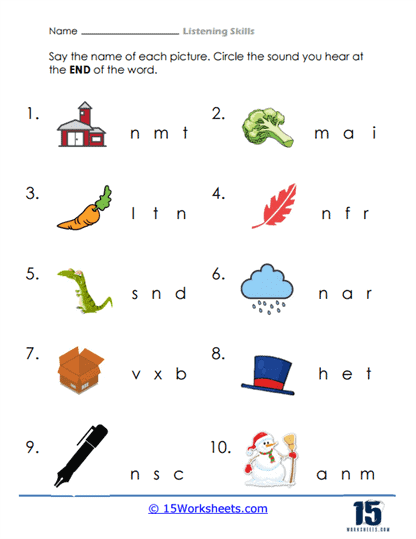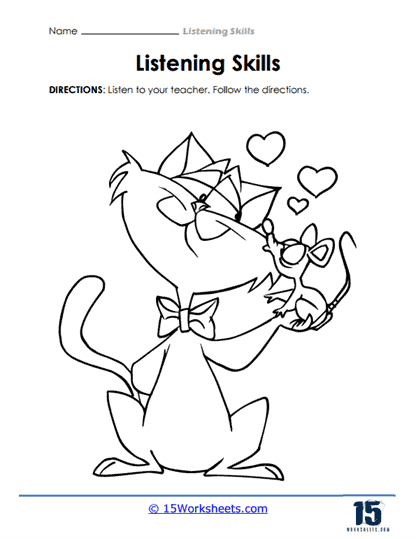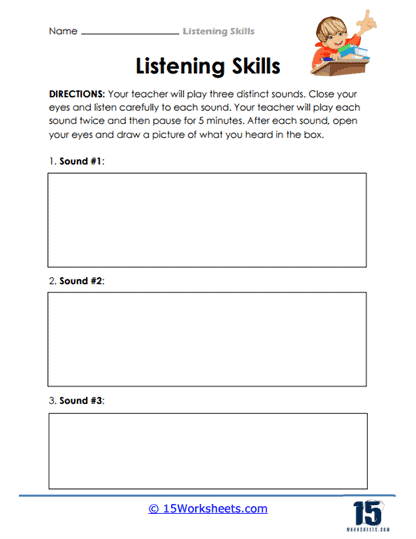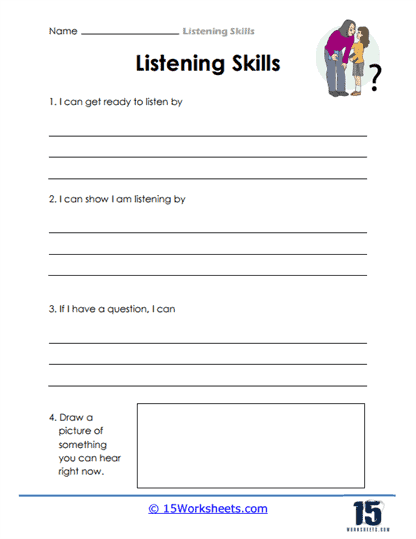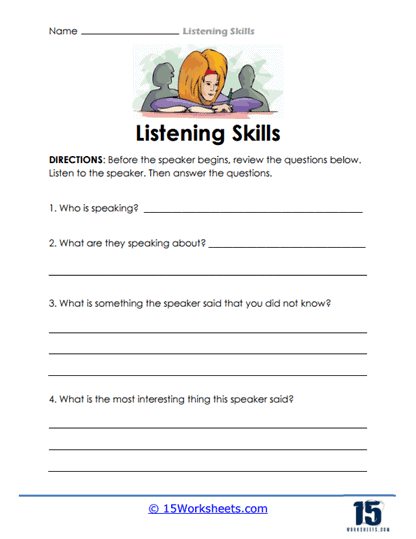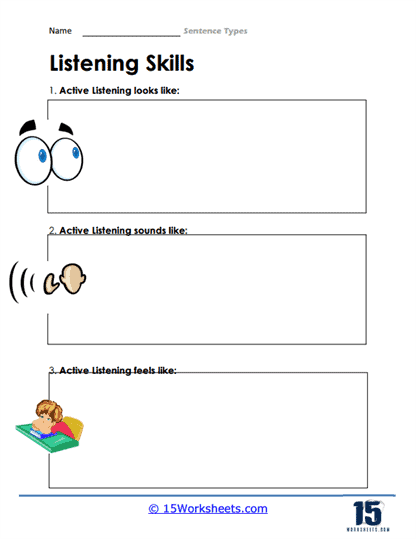Listening Skills Worksheets
All About These 15 Worksheets
In today’s fast-paced world, the ability to listen actively and attentively has become more essential than ever. The constant influx of information, coupled with the distractions of technology, has made it increasingly difficult for many to truly hear and understand what others are saying. To address this challenge, this series of 15 Listening Skills worksheets has been meticulously designed to help students develop one of the most critical skills in effective communication-listening. These worksheets offer a structured yet engaging way for students to hone their listening abilities, transforming them into more attentive, empathetic, and responsive communicators.
Listening is more than just hearing words; it’s about understanding, interpreting, and connecting with the speaker. These worksheets take students on a journey beyond passive listening, encouraging them to engage fully with the conversation. Each worksheet is crafted to provide practical exercises that guide students in applying active listening techniques. Whether through listening to peers, interpreting nonverbal cues, or engaging in reflective exercises, students will gain the tools needed to become more present and mindful listeners. This skill is not just important for the classroom; it lays the foundation for stronger interpersonal relationships, greater academic success, and enhanced emotional intelligence.
One of the core focuses of these worksheets is the ability to recognize and respond to nonverbal cues. Often, what is left unsaid is just as important as the words themselves. By learning to interpret gestures, facial expressions, and tone of voice, students will be able to grasp the deeper meaning of a speaker’s message. This level of understanding fosters empathy, as students become more attuned to the emotions and intentions behind the words. In today’s world, where genuine connection can sometimes feel elusive, these skills are invaluable.
These worksheets emphasize the importance of practicing active listening. Through a variety of activities, students will engage in real-life scenarios where they must listen intently, paraphrase, and ask thoughtful questions to demonstrate their comprehension. This practical application reinforces the value of being an engaged listener who not only hears but also responds meaningfully. By actively practicing these skills, students will learn how to contribute to conversations in a way that makes others feel heard and valued-an essential component of any successful interaction.
How to Improve Your Listening Skills
Improving your listening skills is essential for effective communication and building strong relationships. Here are some tips and strategies to help you become a better listener:
Give Your Full Attention
Remove distractions and focus on the speaker. Put away your phone, turn off the television, and maintain eye contact to demonstrate that you are fully engaged in the conversation.
Be Patient and Engaged
Allow the speaker to finish their thoughts without interrupting or finishing their sentences. Give them time to express themselves, even if they take pauses or need time to find the right words.
Practice Active Listening
Active listening involves not only hearing the words spoken but also understanding the message behind them. Pay attention to the speaker’s tone of voice, facial expressions, and body language to gather additional information about their feelings and intentions.
Use Nonverbal Cues
Show that you are listening through nonverbal cues, such as nodding, maintaining eye contact, and using facial expressions that convey understanding and empathy.
Avoid Jumping to Conclusions
Listen to the entire message before forming an opinion or response. Try not to make assumptions about what the speaker is saying or what they will say next.
Reflect and Paraphrase
After the speaker has finished, reflect on what they said and paraphrase it back to them to confirm your understanding. This can help clarify any misunderstandings and show the speaker that you have been actively listening.
Ask Open-ended Questions
Encourage the speaker to share more information by asking open-ended questions, such as “How did that make you feel?” or “Can you tell me more about that experience?”
Keep an Open Mind
Approach conversations with a willingness to learn and understand the speaker’s perspective, even if it differs from your own. Avoid being judgmental or dismissive of their opinions and feelings.
Offer Empathy and Support
Validate the speaker’s emotions and show empathy for their experiences. Offer support and encouragement when appropriate.
Practice Regularly and Consistently
Like any skill, becoming a better listener takes practice. Make a conscious effort to apply these tips and strategies in your everyday conversations.
By working on these listening skills, you will foster better communication, strengthen your relationships, and improve your ability to understand and connect with others.

